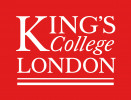© Pint of Science, 2025. All rights reserved.
Human or artificial, intelligence has always attracted our curiosity. Want to know how much genes control your intelligence? Or whether we are about to be enslaved by intelligent machines? Come along to our event to find out more!
This event is also supported by the NIHR Biomedical Research Centre and Dementia Biomedical Research Unit (BRC/U) at South London and Maudsley NHS Foundation Trust and the Institute of Psychiatry, Psychology and Neuroscience, King’s College London.
This event is also supported by the NIHR Biomedical Research Centre and Dementia Biomedical Research Unit (BRC/U) at South London and Maudsley NHS Foundation Trust and the Institute of Psychiatry, Psychology and Neuroscience, King’s College London.
Intelligence: Findings from genetic research
Robert Plomin
(Professor of Behavioural Genetics)
Intelligence is a core construct within our society. It is one of the best predictors of education, occupation and health. With this in mind, it is important to understand the origins of individual differences in intelligence and ask questions such as: how heritable is intelligence? Does the heritability change over time? And how do the components of intelligence relate to one another? We look at the broad range of intelligence across the population to answer these questions.
To plug in, or plug out? That is the question.
Sanjay Modgil
(Senior Lecturer in Computer Science)
It has been claimed that we are on the verge of an Artificial Intelligence revolution and that, as with any revolution promising a utopia, we should heed warnings that all might not be well in the promised land of super intelligent machines. Indeed, many consider that the enslavement of humanity by such machines is a real prospect and not just the stuff of SciFi. To help prevent such outcomes, I will argue that machines need to be able to reason about moral and ethical issues, and then describe how my research in logic and argument can contribute to this aim.
Map data © OpenStreetMap contributors.


